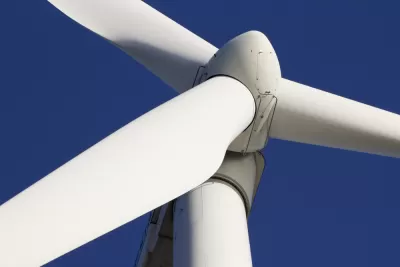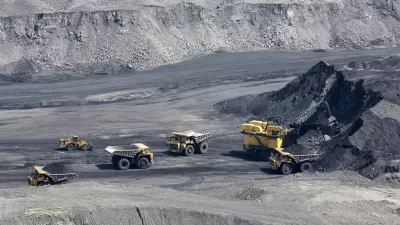Technological improvements and market demand have buoyed the sector against the Trump adminsitration’s attacks.

Technological advances and interest in renewable energy have made wind power attractive to investors and communities around the United States. While the Trump administration has created legislative roadblocks and accused windmills of giving people cancer (they don’t), utilities have continued to build wind farms. "Wind represented the third largest source of new generation in the U.S., behind solar and natural gas in 2018, according to the DOE," John Funk writes for Utility Dive.
Larger rotors and higher windmills made possible by technological advances have created windmills that generate more power. These advances, combined with state mandates for clean energy and existing tax policies, have made the sector attractive to investors. Industry experts predict continued growth in the sector and point to a backlog of projects in the planning phases or in process.
FULL STORY: Wind blows past Trump's digs as average PPA prices fall below $0.02/kWh

Maui's Vacation Rental Debate Turns Ugly
Verbal attacks, misinformation campaigns and fistfights plague a high-stakes debate to convert thousands of vacation rentals into long-term housing.

Planetizen Federal Action Tracker
A weekly monitor of how Trump’s orders and actions are impacting planners and planning in America.

Chicago’s Ghost Rails
Just beneath the surface of the modern city lie the remnants of its expansive early 20th-century streetcar system.

Bend, Oregon Zoning Reforms Prioritize Small-Scale Housing
The city altered its zoning code to allow multi-family housing and eliminated parking mandates citywide.

Amtrak Cutting Jobs, Funding to High-Speed Rail
The agency plans to cut 10 percent of its workforce and has confirmed it will not fund new high-speed rail projects.

LA Denies Basic Services to Unhoused Residents
The city has repeatedly failed to respond to requests for trash pickup at encampment sites, and eliminated a program that provided mobile showers and toilets.
Urban Design for Planners 1: Software Tools
This six-course series explores essential urban design concepts using open source software and equips planners with the tools they need to participate fully in the urban design process.
Planning for Universal Design
Learn the tools for implementing Universal Design in planning regulations.
planning NEXT
Appalachian Highlands Housing Partners
Mpact (founded as Rail~Volution)
City of Camden Redevelopment Agency
City of Astoria
City of Portland
City of Laramie





























